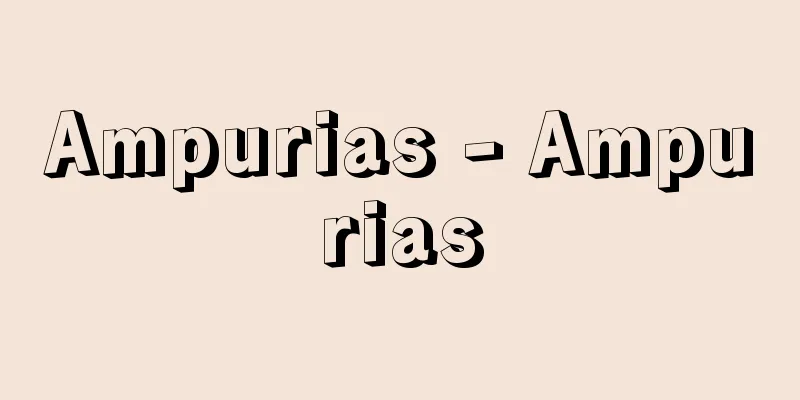Secret language - Ingo

|
It is a special language used among a limited number of people belonging to a certain occupation or social status, mainly to keep secrets or to avoid speaking openly. For example, among thieves, "buy" means to steal, and "saru" means a prisoner. Dialects and technical terms used by engineers and scholars are also used among a limited number of people, but the former are limited to a certain area, and the latter are for accurate and prompt communication, and neither is intended to be made public, so they are not called slang. Slang also has the effect of strengthening a sense of camaraderie by using words that others cannot understand, and breaking monotony by inventing and using special words. This characteristic is strong in words such as "gelpin" (a state of being short of money) and "bakkushan" (a beautiful woman from behind). When words become widely known to the general public, such as "neta" (materials) and "roha" (just for free), it becomes difficult to distinguish them from everyday language. While many slang terms are used by antisocial groups such as thieves, gamblers, and gangsters, there are also some used by artisans ('oshaka' = defective goods), merchants ('agemono' = stolen goods), monks ('soryo' = chicken), soldiers ('hiru' = amphibious trucks), and students ('muskeru' = manual labor). Also, even for the same thief, there are differentiated terms for pickpocketing and theft, and there is also the phenomenon of thieves' slang being reused by police officials. In slang, the shifts in meaning and substitutions of words are much more frequent than in ordinary language. For example, "geso," meaning footwear or geta (wooden clogs), has changed to straw sandals, feet, escape, etc., while a variety of words have been created to express the meaning of "steal," including "kau," "yomegu," "kiburu," "giru," "kamaru," "takeru," "tsumu," "baisuru," "morau," "mokeru," and "yakasu." This is due to the desire for words with a fresh feel, and the convenience of frequent changes in keeping secrets. Because the range of people who use them is small, frequent changes are unlikely to cause problems. Slang is formed in several ways, including (1) changing the form of words and (2) using a word to mean something different from its normal meaning. (1) includes abbreviations (gane = glasses, ai = dagger) and inversions (eko = voice, baishi = theater, bukei = police inspector, kutsuru = make, rumai = round), with inversions being the majority of criminal slang. (2) includes similarities between the everyday meaning of the word and what it means as slang (matsuba = needle, kurogarasu = winter uniform detective, ushi no shita = konnyaku), and proximity (gokuraku = lotus root, hinoki ita = high-quality sake, gacha = police officer). There are also combinations of (1) and (2) ("Aka" ← "Akainu" = fire), and others that are similar to riddles ("Kunoichi" = woman). In terms of parts of speech, nouns are overwhelmingly more common. [Keisuke Onoue] Source: Shogakukan Encyclopedia Nipponica About Encyclopedia Nipponica Information | Legend |
|
特定の職業や身分に属する限られた人々の間で、主として秘密を守ったり、あからさまにいうのを避けたりするために用いる特別のことばのことをいう。たとえば、盗人同士の間で「買う」といえば盗むの意であり、「猿」といえば囚人のことである。方言、技術者や学者が使う専門語なども限られた人々の間で用いられるものであるが、前者は地域的に限られたもの、後者は正確で敏速な伝達のためのものであって、いずれも公開をはばかるためのものではないから、隠語とはよばれない。隠語にはまた、他人にわからないことばを使うことで仲間意識を強める、特別なことばを考え出して使うことで単調さを破る、といった効用もある。「ゲルピン」(金に困っている状態)、「バックシャン」(後ろ姿美人)のような語では、その性格が強い。「ネタ」(材料)、「ロハ」(只(ただ))のように一般に広く知られたものになると、日常語との区別がつきにくくなる。 隠語は、盗人、博徒、やくざなど反社会的な集団で用いられるものが多いが、職人(「おしゃか」=不良品)、商人(「あげもの」=盗品)、僧侶(そうりょ)(「はだし」=鶏肉)、兵隊(「あひる」=水陸両用トラック)、学生(「ムスケル」=肉体労働)などの間でもそれぞれに用いられるものがある。また、同じ盗人でも、すりと窃盗では用語が分化していたり、あるいは盗人の隠語が警察関係者の間で流用されたりといった現象もみられる。 隠語では、語義の転変や語の入れ替わりが通常のことばよりもはるかに激しい。たとえば「げそ」は履き物、下駄(げた)の意から、草鞋(わらじ)、あし、逃亡、などへと変わっているし、一方「盗む」の意を表すのに、買う、嫁ぐ、きぶる、ぎる、かまる、たける、摘む、ばいする、もらう、儲(もう)ける、やかす、など種々の語がつくられている。これは、語感の新鮮なものを求めること、秘密を守るのにもしばしば変わるほうが都合がよいことなどによる。使う人の範囲が狭いので、頻繁に変わっても支障が生じにくいのである。 隠語のでき方には、(1)ことばの形を変えるもの、(2)あることばを普通の意味とは違う意味に使うもの、などがある。(1)には、省略によるもの(「がね」=眼鏡、「あい」=匕首(あいくち))、転倒によるもの(「えこ」=声、「ばいし」=芝居、「ぶけい」=警部、「くつる」=つくる、「るまい」=丸い)があり、転倒によるものが犯罪者の隠語の主流をなしている。(2)には、その語形の日常的な語義と隠語として意味する内容とのなんらかの類似性に基づくもの(「松葉」=針、「黒烏(くろがらす)」=冬服刑事、「牛の舌」=こんにゃく)、近接性に基づくもの(「極楽」=蓮根(れんこん)、「檜(ひのき)板」=上等酒、「がちゃ」=巡査)がある。また(1)と(2)の組み合わさったものもあり(「アカ」←「赤犬」=火事)、ほかに謎(なぞ)に類するもの(「くのいち」=女)もある。なお、品詞の面では、名詞が圧倒的に多い。 [尾上圭介] 出典 小学館 日本大百科全書(ニッポニカ)日本大百科全書(ニッポニカ)について 情報 | 凡例 |
>>: Parakeet (Parakeet) - Parakeet (English spelling)
Recommend
Phylakos
…His name means “black foot”. After saving his li...
Albany Congress - Albany Congress
The North American Colonial Congress was held in A...
Ballooning
… [Air Flight] There are various ways for baby sp...
Anti-Soul Pill - Hangontan
A medicine sold by Toyama medicine sellers during ...
The struggle to regain the right to strike
This refers to the struggle of labor unions to res...
Nisui-ki
A record of the Warring States period. Also known...
Christian Theology
A study that focuses on the content of Christian ...
Todus mexicanus (English spelling)
…[Naoya Abe]. … *Some of the terminology that men...
Acting Club
... It is made up of the various stage-related st...
Wash Bay - Washwan (English spelling)
A shallow inlet of the North Sea on the east coast...
Mimosusogawa Utaawase - Mimosusogawa Utaawase
Saigyo's personal poetry contest, dedicated to...
Introduction to the Ainu Language - Ainugonyumon
…He also conducted a wide range of research on th...
Apocrypha
Apocrypha (originally from the Greek word for &quo...
Checkered pattern - Ichimatsumoyo
A checkerboard pattern of alternating black and wh...
Fundamental cycle
...Any periodic function of a real variable has a...









